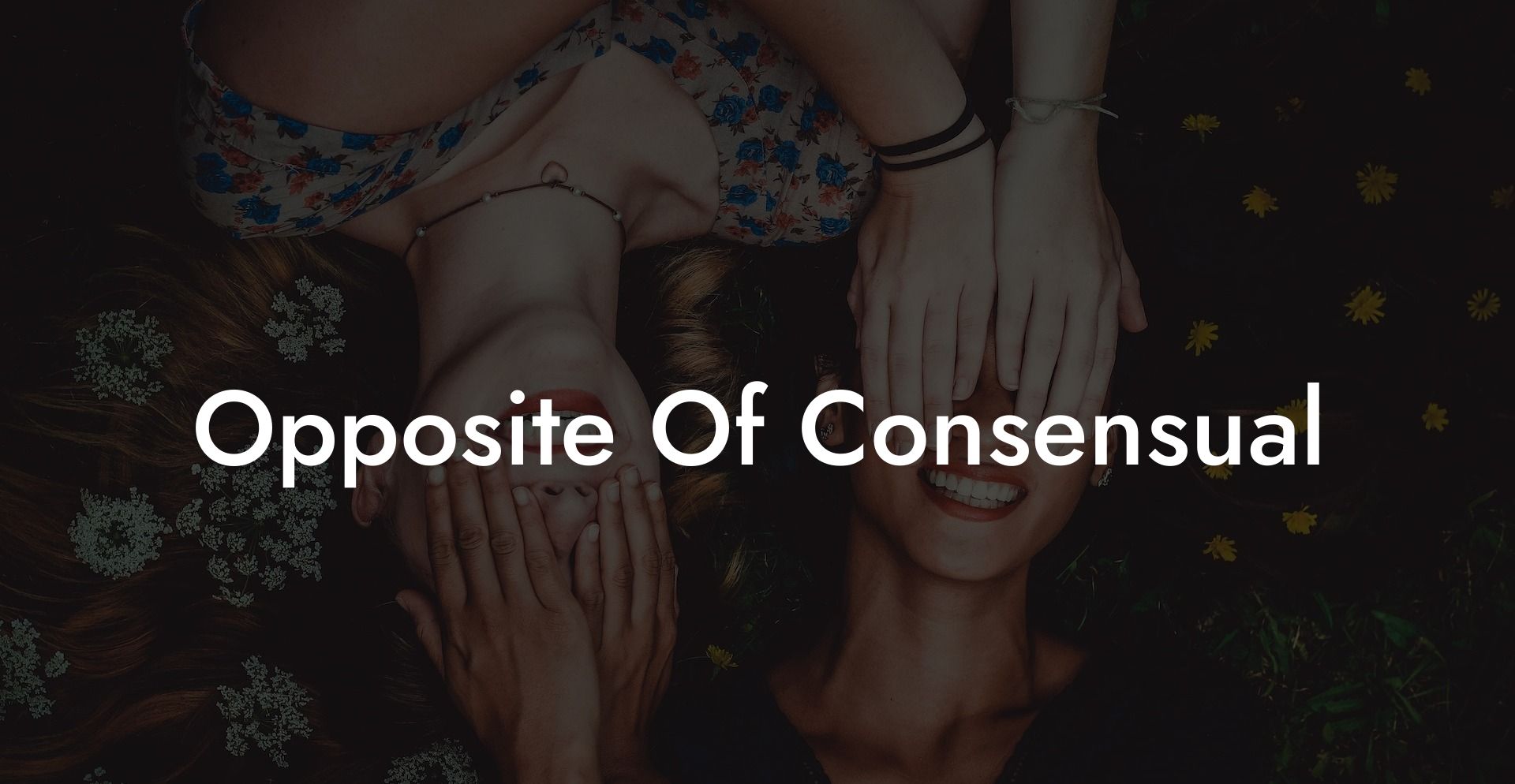The world of relationships has been evolving, and terms like consensual non-monogamy (CNM) have become mainstream. However, not everyone fully understands the nuances between consensual and non-consensual situations. This article will explore what exactly is the opposite of consensual and how it can manifest in romantic relationships. Gaining a better understanding of consent will enable readers to navigate their own relationships more ethically and responsibly. So, let's dive into the deep world of consent and its antithesis.
Opposite Of Consensual Table of Contents
Understanding Consent
Before delving into the opposite of consensual, it is vital to understand the concept of consent. Consent is a voluntary, informed, and ongoing agreement to participate in a specific activity. In the context of romantic and sexual relationships, consent should be enthusiastic, explicit, and informed. It is a mutual understanding between all the partners involved in any situation or activity.
The Opposite of Consensual: Coercion and Manipulation
In romantic relationships, the opposite of consensual often involves coercion and manipulation. Coercion means using power, control, or force to pressure someone into something they did not want or agree to participate in. Manipulation, on the other hand, is a method of emotional and psychological control in which an individual influences someone's thoughts, feelings, or actions without their consent.
Examples of Non-Consensual Relationship Dynamics
There are various ways non-consensual dynamics can appear in romantic relationships. Here are some examples:
- Forced Monogamy: One partner insisting on exclusivity and monogamy without the consent or enthusiasm of the other partner falls under this category. The non-consenting partner may feel trapped or disconnected from their desires.
- Unwanted Sexual Experiences: One partner engaging in sexual activities without the consent of the other can lead to emotional and physical harm. Consent must be explicit and can be withdrawn at any time.
- Emotional Blackmail: Emotional blackmail involves using guilt, fear, or manipulation to pressure someone into behaving or believing in a certain way. This can be seen when one partner pressures the other into agreeing to relationship terms against their will.
- Using Jealousy as Control: In a non-consensual dynamic, one partner may use jealousy as a tool to control the other's actions or beliefs. This may include restricting their partner from forming relationships with others or dictating how they should behave in social situations.
- Enforcing Hierarchy: This can happen when one partner insists on maintaining a power imbalance in the relationship, either by asserting their authority or diminishing their partner's autonomy and decision-making abilities.
Opposite Of Consensual Example:
Jane and Tom are in a relationship where Tom exerts power and control over Jane. He insists on maintaining a monogamous relationship and becomes emotionally manipulative whenever Jane brings up the idea of exploring polyamory. Tom uses guilt and jealousy as tools to control Jane, making her feel as though her desires for non-monogamy are wrong. Despite her unease with the arrangement, Jane reluctantly agrees to Tom's terms to maintain the relationship. In this example, Tom is engaging in non-consensual behavior by forcing Jane into a relationship dynamic that is contrary to her desires and beliefs.
Now that you have a better understanding of what the opposite of consensual entails, you can hopefully make more informed decisions in your relationships moving forward. Consent is the cornerstone of ethical and fulfilling relationships, and recognizing when it is absent is crucial to ensuring the well-being of all partners involved. If you found this insight valuable, feel free to share it with others, and don't hesitate to explore other guides provided by The Monogamy Experiment. Remember, consent is key, and knowledge is power when navigating romantic relationships.













